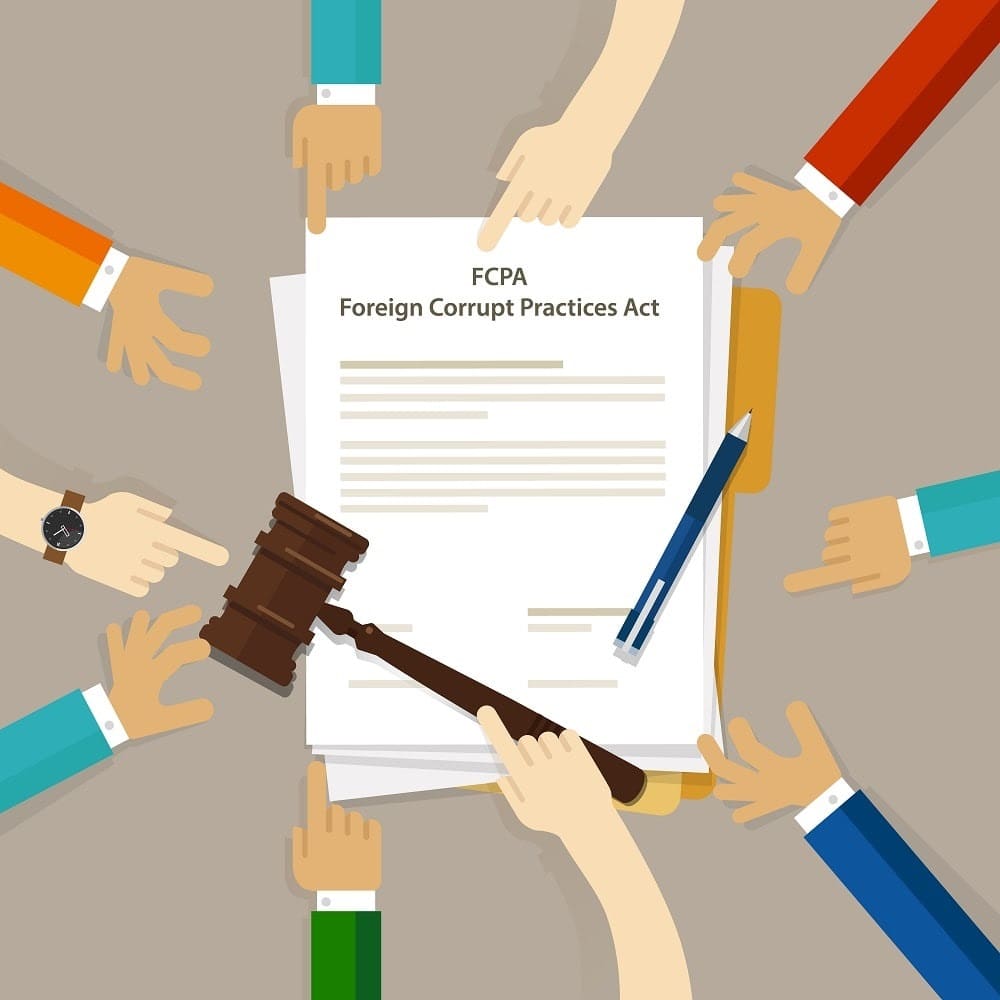Obvious conflicts of interest and a pattern of corrupt bidding practices led to penalties announced today by the Royal Court of Justice. Sofia El Mansouri, reporting for CCI, outlines the issues and offers takeaways for today’s compliance professionals.
The U.K. Serious Fraud Office (SFO) has entered into its ninth deferred prosecution agreement (DPA) with Airline Services Limited (ASL) after obtaining final approval from the Royal Court of Justice today. The misconduct concerns three occasions of bribery of an agent in order to secure valuable contracts with Lufthansa during the period between 2011 and 2013.
Airline Services Ltd is a defunct U.K.-based services and products provider for the refurbishment of commercial aircraft interiors.
Under the terms of the DPA, ASL will be paying a total of £2,229,685.76 (roughly $2.9M) made up of disgorgement of profit of £990,971.45 and a penalty of £1,238,714.31. ASL will also be required to make a contribution to the SFO’s costs of £750,000.
The Misconduct
Notice here that ASL’s misconduct did not include bribery of a foreign official, but bribery of an agent. When put in perspective, a $2.9M fine for bribery of an agent is enough to send a strong message to any company operating under U.K. law.
Let’s take a closer look at the scheme:
ASL Sales Teams and Agents
The ASL Sales personnel were entitled to a commission calculated based on gross sales to airlines. To secure the airlines’ business, most of ASL’s sales personnel used agents. ASL had a number of agreements with such agents, who were considered to have better contacts with individual airlines.
These agreements specified the percentage commission that agents would obtain, based on the price of the contract. So far, so good; this sounds like a typical aviation industry commission structure.
But here’s the issue: the commission arrangements between ASL and its sales personnel, and between ASL and the agents, were based on a contract’s price – not on its profitability. This triggered the risk that sales personnel might commit the company to contracts profitable for themselves and agents, with little regard to the interests of the company.
And that’s exactly what happened with “Agent 1.”
Contracts with Lufthansa and the Use of Agent 1 in Germany
In 2011, ASL entered into an agreement with an agent (“Agent 1”) under which it agreed to pay Agent 1 a 10 percent commission (later reduced to 5 percent) based on the contract price of any business won by ASL as a result of Agent 1’s efforts.
But here is the issue: Agent 1 was not only ASL’s agent, but also Lufthansa’s project manager: first as a consultant and then employee – an obvious conflict of interest that ultimately provided an unfair competitive advantage to ASL.
Agent 1 worked on projects for the improvement of the interior of Lufthansa’s fleet of Airbus 340s and Boeing 747s. Agent 1’s duties included working on Lufthansa’s Requests for Proposals (invitation to tender documents) before they were sent out to potential bidders, evaluating bid documents and making recommendations to the decision committee regarding the bids that came in. Agent 1 was able, in short, to exercise direct influence over which bidder would be awarded Lufthansa’s business.
Working in Lufthansa’s team in charge of evaluating tenders, Agent 1 was privy to commercially sensitive information about potential competitors to ASL and exploited this information to influence and advantage ASL’s own tender bids.
Two of the contracts for which Agent 1 secured an illegal advantage related to the provision of seat modifications for Lufthansa fleets, and the third related to the provision of brand panels for Lufthansa fleets.
ASL made payments to Agent 1 in respect of three awarded agreements. In the course of carrying out the work under these agreements, ASL secured further work from Lufthansa, thereby increasing the value of the contracts.
The total value of work obtained as a result of entering into the three agreements in respect of which payments were made by ASL to Agent 1 was £7,387,227.00. The overall gross profit to ASL was £990,971.45.
These three agreements, together with the role played by Agent 1 in relation to them, each give rise to a charge against ASL of failing to prevent bribery contrary to Section 7 of the Bribery Act 2010.
What Was ASL Charged for Exactly?
For those not familiar with the U.K.’s “failure to prevent” offence:
Section 7(1) of the U.K. Bribery Act 2010 stipulates that a company is guilty of failing to prevent bribery if a person associated with it bribes another person in order to obtain or retain a business advantage for the company. A legitimate defense under Section 7(2) of the Act would be for the company to have in place adequate procedures designed to prevent people from such misconduct.
The SFO found that despite the recent passing of the Bribery Act 2010, ASL made little effort to educate its staff or put in place controls to identify and counteract instances of bribery. ASL’s compliance procedures during the relevant period (2011-2013) were found to be “woefully inadequate.” And this is what gave rise to the SFO indictment: three counts of failure of a commercial organization to prevent bribery.
Compliance Lessons
So as per this DPA, here’s an example of what not to do if you are trying to claim a defense under the adequate procedures provision:
- In 2010, ASL engaged external legal advisors to assess its compliance with the upcoming implementation of the Bribery Act 2010. (Good)
- This assessment identified that the use of a relatively small number of overseas agents represented a high bribery risk to ASL. The advisors made a number of recommendations to address this risk. (Good)
- The advisors provided ASL with a number of checklists and other documents, including a draft of an “Anti-corruption Policy and Guidelines” for use internally within ASL. (Good)
- In June 2011, a training event in relation to the Bribery Act 2010 was held for some of ASL’s senior managers and regional sales managers. The training included reference to the draft “Anti-corruption Policy and Guidelines. (Good)
So far so good. However…
- By September 2011, a senior executive of ASL informed the external advisors that ASL would be adopting “a different approach.” This ended the external advisors’ work with ASL on compliance with the Bribery Act provisions. (One would hope either an alternative advisor or in-house compliance team would have been appointed?)
- But no, save for that one single lonely training session in June 2011, ASL did not seek to communicate its “Anti-corruption Policy and Guidelines” to staff. Nor did ASL seek to implement any of the remaining recommendations made by the external legal advisors. (Not good)
- The ASL senior management at the time fostered a culture of “willful disregard” of the commission of bribery offenses by employees and agents. The culture entailed having sales personnel entering into agency contracts with decision-making airline employees and entering into contracts based on the price rather than the profitability of the contracts. (Not good)
- The senior management failed to implement an effective compliance program despite having sought and been given a guide and recommendations by which it could do so. (Not good)
It was, therefore, agreed in the DPA that from the implementation of the Bribery Act 2010 on July 1, 2011, to the beginning of 2015, ASL did not have in place any adequate procedures in order to prevent bribery.
Now to the company’s benefit, here is what ASL did do right once it discovered the misconduct:
- In the course of an investigation identified by external advisors, ASL discovered the misconduct and alerted the SFO by immediately self-reporting concerns that had been identified by the external advisors.
- ASL actively cooperated with the SFO throughout the subsequent investigation.
- ASL took immediate steps to identify the deficiencies of its (then negligible) compliance program.
- The offending did not include corrupting any public officials and did not cause major disruption to or loss of confidence in markets or governments.
- The new ASL board of directors has chosen not to wind ASL up (as it otherwise might have done in these circumstances), instead acting to keep the company in existence in order to resolve matters relating to ASL’s past criminal conduct.
Conclusion
The use of third parties, and agents in particular, remains the riskiest bribery area for companies. There are many challenges involved with managing third-party risks. As is often the case, management and the board may lack understanding of the risks or fail to give them the necessary level of attention. It is important to recognize those risks. An important reminder is there is no distinction between different types of third parties under the U.K. Bribery Act or the U.S. Foreign Corrupt Practices Act (FCPA). But here’s advice to those to whom the U.K. Bribery Act may apply: give extra attention to not only bribery of foreign officials, but also company-to-company bribery.



 Sofia El Mansouri, Group Legal & Compliance Manager, has over 11 years of aviation, airlines, defense & automotive industry experience and specializes in setting up ethics and trade compliance programs for national and U.S. companies operating in the Middle East.
She is responsible for the internal compliance and ethics programs of Jetex Executive Aviation & Jetex Flight Support (“Jetex”) and its affiliated subsidiaries in 30 international markets.
Prior to joining Jetex, Sofia was a Legal Officer at Etihad Airways & the Etihad Aviation Group, specialized in governance and corporate structuring; she also served as the Legal & Trade Compliance Officer for the Tawazun Group, which develops ventures across a number of areas: defense and aerospace, automotive, munitions, metals and technology.
Sofia received a bachelor’s degree in Legal Studies from the University of Central Florida and is a Certified Fraud Examiner.
Sofia El Mansouri, Group Legal & Compliance Manager, has over 11 years of aviation, airlines, defense & automotive industry experience and specializes in setting up ethics and trade compliance programs for national and U.S. companies operating in the Middle East.
She is responsible for the internal compliance and ethics programs of Jetex Executive Aviation & Jetex Flight Support (“Jetex”) and its affiliated subsidiaries in 30 international markets.
Prior to joining Jetex, Sofia was a Legal Officer at Etihad Airways & the Etihad Aviation Group, specialized in governance and corporate structuring; she also served as the Legal & Trade Compliance Officer for the Tawazun Group, which develops ventures across a number of areas: defense and aerospace, automotive, munitions, metals and technology.
Sofia received a bachelor’s degree in Legal Studies from the University of Central Florida and is a Certified Fraud Examiner.










